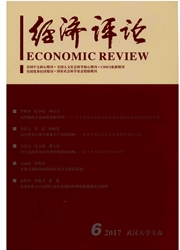

 中文摘要:
中文摘要:
本文利用一个两部门的生产函数,建立了估计能源消费对经济增长溢出效应的计量模型。利用45个国家(地区)1980—2007年的数据,本文实证检验了当以人均消费水平作为门限变量时,能源消费溢出效应的国家(地区)差异。实证检验的结果证实了能源消费与经济增长之间存在非线性转换行为,具体来说两者有且只有一个门限值,当人均消费水平在门限值以内时,能源消费增长对经济增长具有显著的拉动作用;而当超过这一门限水平时,作用反向且不再显著。此外,本文发现超过门限值的主要是发达经济体。这意味着这些国家(地区)不仅从对消费者负责的角度应当实施节能减排,而且从减少对经济增长的负面影响看,也应当并且可以实施严格的能源政策。
 英文摘要:
英文摘要:
This paper sets up an empirical model to estimate the spillover effect of energy consumption on economic growth, using a two - sector production function, and makes an empirical test on the difference of this effect when using consumption per capita as a threshold variable, based on 45 countries' data from 1980 -2007. The result confirms that there is only one threshold, meaning that there is a nonlinear relationship existing between energy consumption and economic growth. And it concludes that when the level of consumption per capita is within the threshold value, the spillover effect is significant and positive, while when beyond the value, the effect is negative and no more significant. Those countries that beyond the threshold value are mainly developed countries. It means that those countries should adopt aggressive energy policy, as it not only is in accordance with consumers' responsibility principle, but also avoids the policy's negative effect on economic growth.
 同期刊论文项目
同期刊论文项目
 同项目期刊论文
同项目期刊论文
 期刊信息
期刊信息
